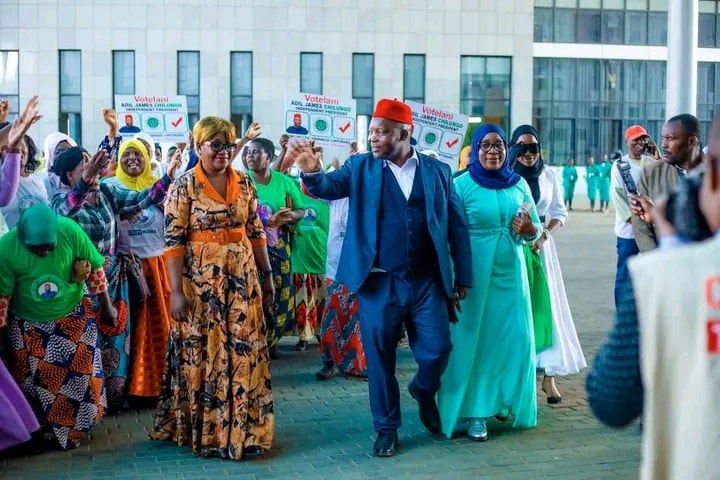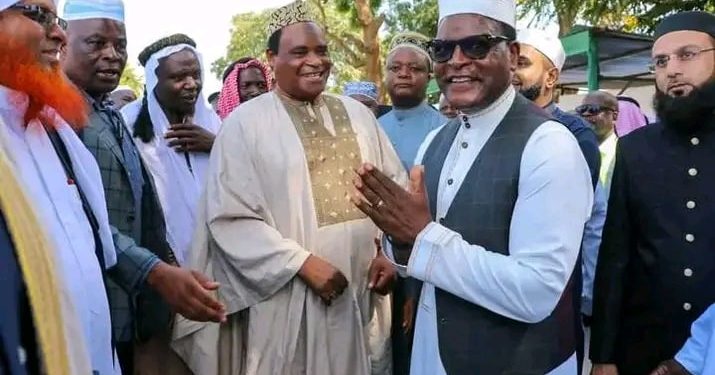On July 24, 2025, as Malawi inches closer to the September 16 general elections, the Malawi Electoral Commission witnessed a telling moment in our democratic journey. Presidential hopefuls presented their nomination papers, and among them was independent candidate Adil Chilungo—one of several independents brave enough to throw their hats into the ring this election season.
What should have been celebrated as a demonstration of democratic participation instead became another sobering reminder of how we Malawians treat those who dare to challenge the established order. The moment Chilungo stepped forward, social media exploded with the usual chorus of dismissal: “He’s just wasting people’s time,” “He can’t win,” “He just threw away his 10 million kwacha nomination fee,” and my personal favorite, “We joke too much in this country.” Similar dismissive attitudes have greeted other independent candidates throughout this nomination period.
Yet there stood Chilungo—having read every cruel comment and absorbed every piece of discouragement—presenting his papers with unwavering confidence and dignity. Even MEC spokesperson Justice Annabel Mtalimanja couldn’t help but commend Chilungo for his courage in seeking to compete for the country’s highest office, acknowledging the magnitude of what he was undertaking. Whether he or any other candidate wins or loses is ultimately God’s decision, but their collective courage exposes a disturbing truth about our political psyche that we must confront.
When did we become a nation so invested in crushing dreams before they even take flight? Why do we Malawians reflexively discourage anyone who dares to present themselves as an alternative, regardless of the quality of their manifesto or the sincerity of their intentions? Have we truly convinced ourselves that only the familiar faces of established parties possess the mystical ability to govern this country?
This mindset is not just disappointing—it’s dangerous. If being popular or party-affiliated was the magic formula for solving Malawi’s problems, we wouldn’t still be wrestling with the same challenges more than 60 years after independence. Our quick dismissal of new voices—whether independent candidates or those from smaller parties—reveals a troubling complacency that perpetuates the very mediocrity we claim to despise.
But here’s what truly moved me about today’s events: the hall during Chilungo’s nomination was filled with women in hijabs and men in kofias. Predictably, some Malawians couldn’t resist mocking this sight, joking that it “looked like a madrassa.” I saw something entirely different—I saw a community refusing to abandon one of their own in the face of national ridicule.
Chilungo’s charity work has indeed focused primarily on Muslim communities, though it has significantly benefited non-Muslims as well. The Muslim community’s visible solidarity with their candidate represents exactly the kind of civic engagement we should be celebrating, not mocking. Should these women have hidden their hijabs to avoid being ridiculed for supporting a fellow Muslim? Should a community sacrifice their political voice to appease those who find their religious identity inconvenient?
The uncomfortable truth is that our democracy has been hijacked by a culture of premature political obituaries. We’ve become experts at killing candidacies before they even begin, at dismissing ideas before we hear them, at mocking courage before we understand its source. This isn’t political analysis—it’s political vandalism.
Every candidate who meets the legal requirements—regardless of their party affiliation or lack thereof—deserves more than our knee-jerk dismissal. They deserve engagement with their ideas, scrutiny of their proposals, and the basic respect that democracy demands. Our strength as a nation lies not in our ability to predict winners and losers but in our willingness to consider new possibilities and challenge old assumptions.
The Muslim community’s unwavering support for Chilungo should shame us all. In a healthy democracy, standing firmly behind your candidate—regardless of their religious background, party affiliation, or perceived chances—isn’t naivety. It’s citizenship at its finest. It’s the kind of principled participation that builds strong democratic institutions.
As we count down to September 16, we face a choice that extends far beyond which candidate wins. We can continue our tradition of discouraging political courage and mocking those who dare to dream differently. Or we can mature into a democracy that nurtures new voices, engages with fresh ideas, and celebrates the audacity to challenge the status quo—whether those voices come from established parties or independent platforms.
The real question isn’t whether Adil Chilungo or any other candidate will win the presidency. The real question is whether we’re brave enough to stop being the country that kills dreams before they have a chance to breathe.




















